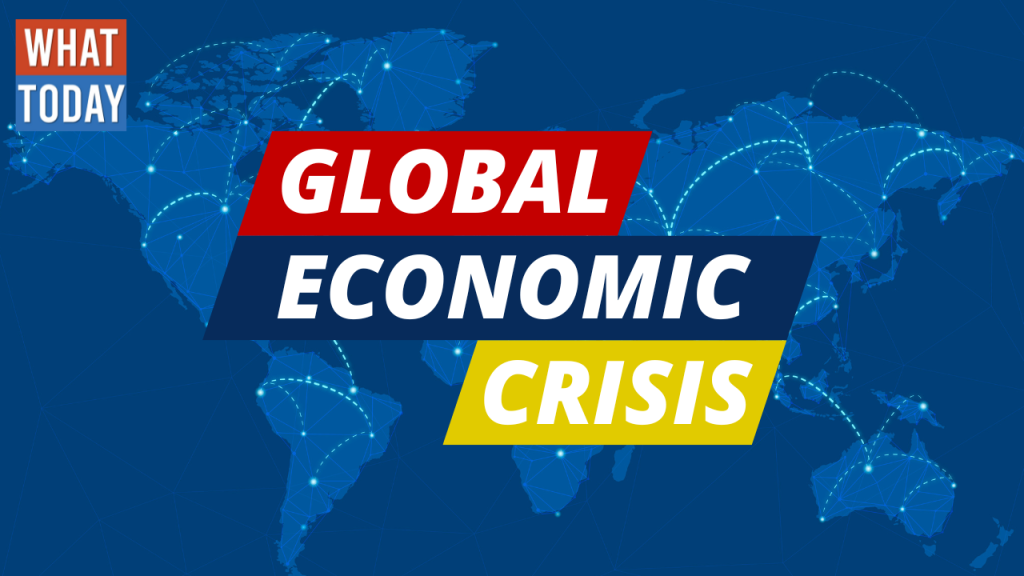
The COVID-19 pandemic has caused a global economic crisis, the likes of which have not been seen in recent history. The pandemic has had devastating impacts on businesses, industries, and individuals, leading to massive unemployment and economic contraction. Governments and central banks have implemented measures to counteract the effects of the pandemic, but the path to economic recovery remains uncertain. This article will explore the current state of the global economic crisis and its impacts, with a focus on SEO keywords.
The Global Economic Outlook :
The International Monetary Fund (IMF) has projected a global economic contraction of 4.4% in 2020 due to the pandemic, the worst decline since the Great Depression. The pandemic has had a disproportionate impact on low-income and developing countries, where access to healthcare and financial resources is limited. These countries have struggled to implement effective pandemic response measures, resulting in higher infection rates and greater economic damage. The IMF estimates that the pandemic will increase global poverty levels by 150 million in 2021, reversing progress made in recent years.
The travel and tourism industry has been one of the hardest-hit sectors, with border closures and travel restrictions causing a massive drop in revenue. The International Air Transport Association (IATA) estimated that the airline industry would lose $84.3 billion in 2020, with passenger traffic falling by 66%. The hospitality industry has also been severely impacted, with many hotels and restaurants closing down or operating at a reduced capacity. These industries are important sources of employment, and their decline has led to widespread unemployment.
Government Responses
Governments around the world have implemented various measures to counteract the economic effects of the pandemic. One of the most common measures has been the provision of financial support to businesses and individuals. Governments have provided loans, grants, and subsidies to keep businesses afloat and prevent layoffs. In the United States, the Coronavirus Aid, Relief, and Economic Security (CARES) Act provided $2.2 trillion in economic relief, including direct payments to individuals, expanded unemployment benefits, and loans to small businesses.
Central banks have also implemented monetary policies to support the economy. The Federal Reserve, for example, has cut interest rates to near zero and launched various lending programs to provide liquidity to financial markets. The European Central Bank has launched a €1.85 trillion stimulus package to support the eurozone economy, while the Bank of Japan has implemented a zero interest rate policy and increased its purchases of government bonds and exchange-traded funds.
Challenges and Implications Despite these measures, the road to economic recovery remains uncertain. The pandemic is still ongoing, and the emergence of new variants of the virus has raised concerns about the effectiveness of vaccines and the potential for future waves of infection. The distribution of vaccines has also been slow and unequal, with many low-income countries having limited access to them. This has led to calls for greater international cooperation to ensure that vaccines are distributed fairly and efficiently.
The pandemic has also exposed existing economic inequalities and vulnerabilities. Low-income and vulnerable populations have been hit the hardest, and there are concerns that the pandemic may widen existing income and wealth disparities. It is crucial for governments and international organizations to address these inequalities and ensure that economic recovery is inclusive and sustainable.
Conclusion: The global economic crisis caused by the COVID-19 pandemic has had profound and far-reaching impacts on businesses, industries, and individuals. The road to economic recovery remains uncertain, and it is crucial for governments and international organizations to work together to address the economic, social, and health challenges posed by the pandemic. By implementing effective pandemic response measures, providing financial support to those in need, and addressing existing economic inequalities, it may be possible to build a more resilient and sustainable global economy for the future.
List that affected Global Economies:
- Pandemic
- Recession
- Unemployment
- Supply chain disruptions
- Business closures
- Government responses
- Central bank policies
- Economic relief measures
- Monetary stimulus
- International cooperation



